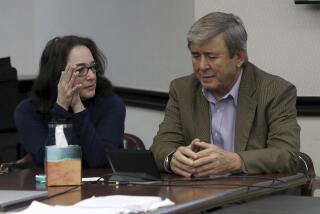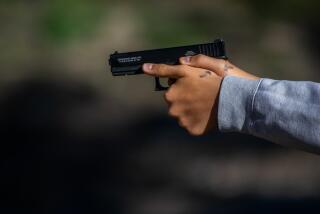Column: Three years after being shot at school, this teen has made our survival her fight
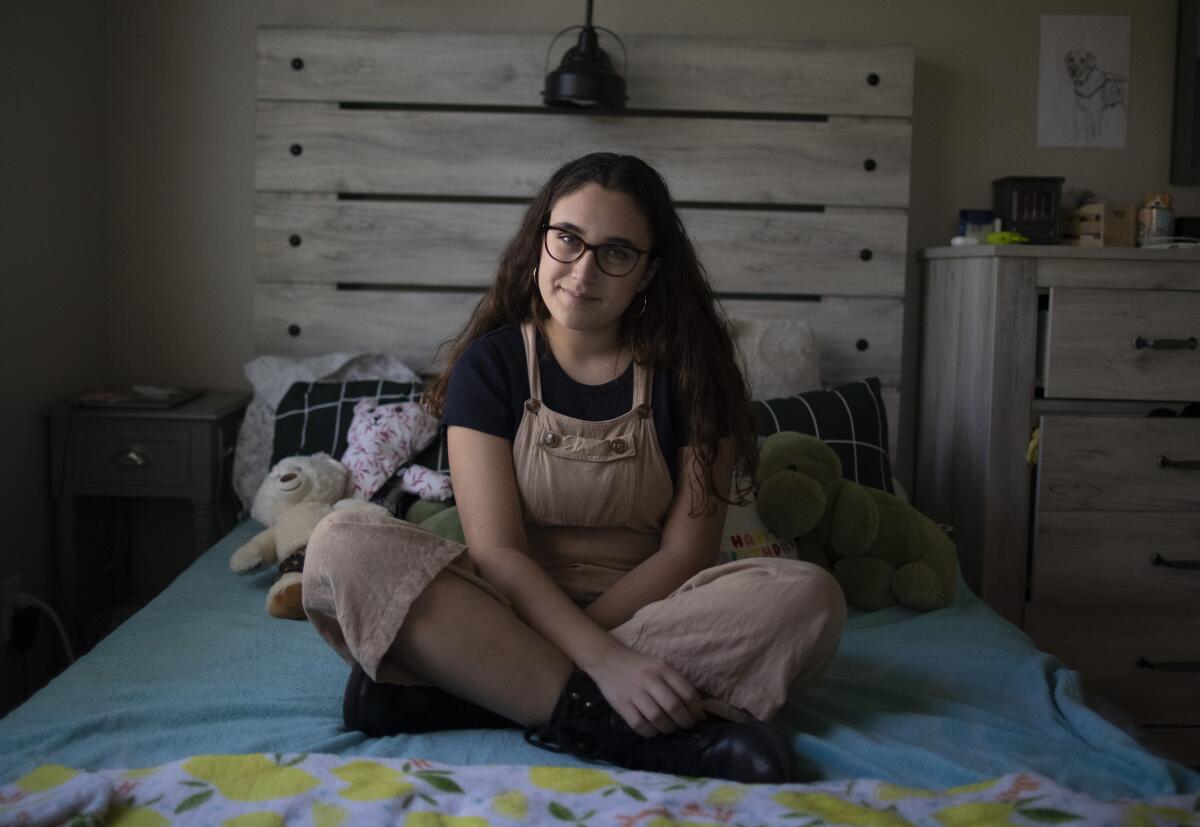
Before she was shot in the stomach at Saugus High School, Mia Tretta volunteered at a Los Angeles food bank every year around Thanksgiving.
On Nov. 14, 2019, in the minutes before a bullet from a ghost gun hit her, Mia was on the phone with her mom, Tiffany Shepis-Tretta. They were trying to figure out a day Mia could skip school to pack boxes of food without missing a test. She was walking into class after being dropped off by her grandmother at the Santa Clarita campus.
So carefree, Tiffany thinks now, remembering her daughter as a freshman. So hard to think how small the problems were.
Seconds after Mia hung up, a fellow student pulled a .45 caliber semiautomatic — made from a kit sold by a still-operating internet business in Chula Vista — and fired into the quad.
He killed two students, including Mia’s best friend Dominic Blackwell, and wounded three before taking his own life. Hurt and dazed, Mia ran into a classroom.
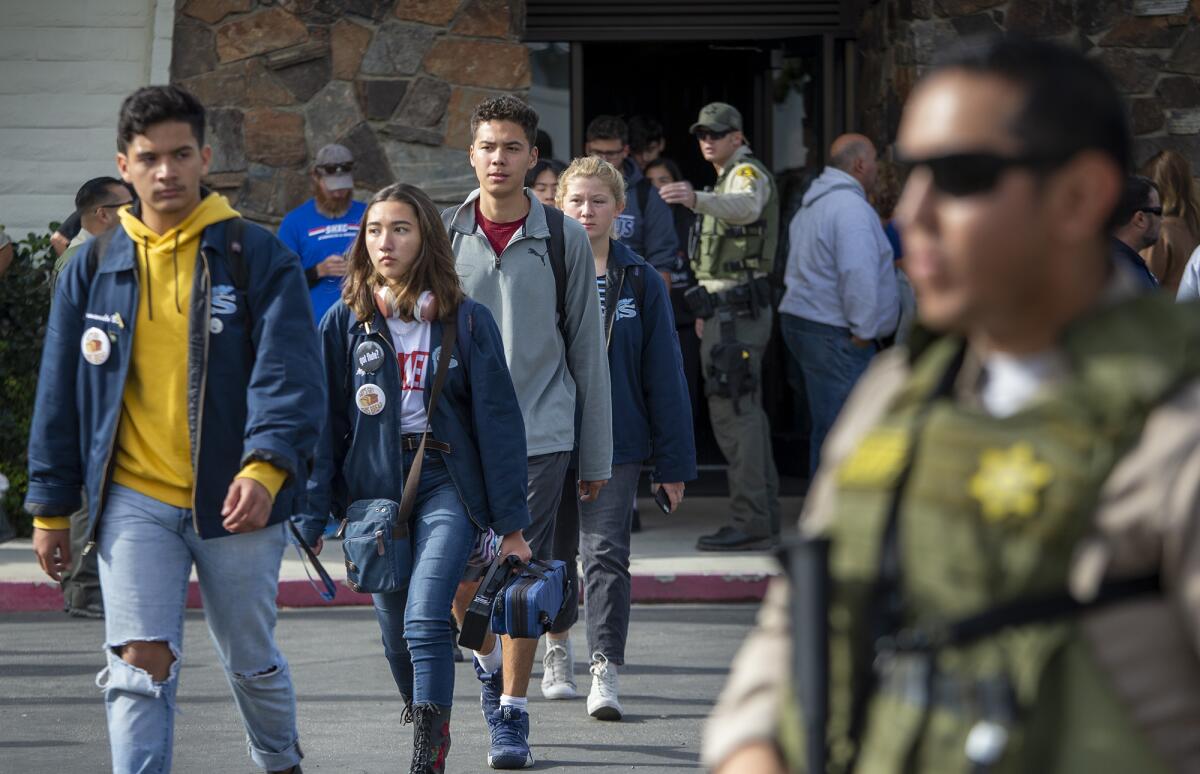
Most of us barely remember the Saugus High shooting, headline news when it happened three years ago. And why would we? There have been many more school shootings since, and hundreds of acts of gun violence in California and across the country this year alone. The Gun Violence Archive puts the number at more than 600 so far in 2022 — including 21 dead in Uvalde, Texas, and 10 gunned down in a grocery store in Buffalo, N.Y.
Colorado Springs, Colo., was the new headline, five dead Saturday night in an LGBTQ club. Then Tuesday night brought another horror. Seven people dead in a Virginia Walmart, including the gunman, who used his final shot on himself.
Can you even name any of the others? Do you remember in April when a gunman wounded 10 in a New York subway car? Or May when an angry man killed one and wounded four at the Irvine Taiwanese Presbyterian Church in Laguna Woods?
Or June in Oklahoma when yet another armed man killed five at a medical center and left more with “non-life threatening injuries,” which is really just a cold and careless way of saying welcome to a life of trauma, both for the victims and those who love them.
“You can’t wait to care until it happens to you,” Mia told me Tuesday. And if telling her story, driving that point home, gets the attention of just one person, it’s worth the salt-in-the-wound ache of digging up the details, she said.
“At the rate that gun violence is happening now, everyone is going to know somebody, everybody is going to have gun violence touch them,” she said. “The whole world is hurting. All of these shootings happening over and over and over again is hard for me. But its also so incredibly hard for our whole country.”
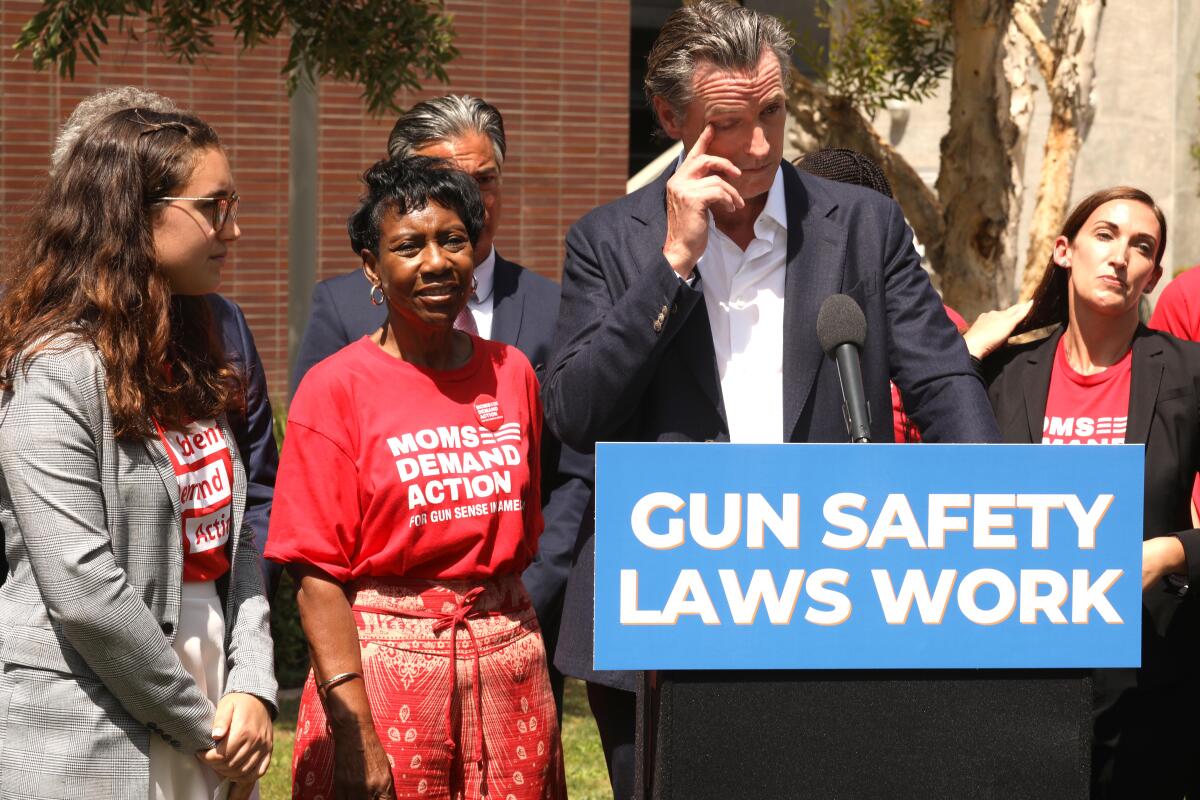
She’s a senior now, still at Saugus High, but spends much of her time as a gun-sense advocate with organizations including Students Demand Action. These last few weeks, with the shootings in Colorado and Virginia, the pressure of a holiday meant to underscore gratefulness and the three-year anniversary of the Saugus shooting, have been hard — for Mia’s whole family.
“First and foremost in the grand scheme of anything like this, we are lucky because she’s here. She’s with us,” Tiffany said. “Those are the things you think about when the holidays come. I think about [Dominic’s] family.”
Mia worries people don’t even remember him — the 14-year-old kid with curly hair who “wasn’t afraid of anything,” Tiffany said. He and Mia had an 8-minute long secret handshake they would do every time they met, Mia said.
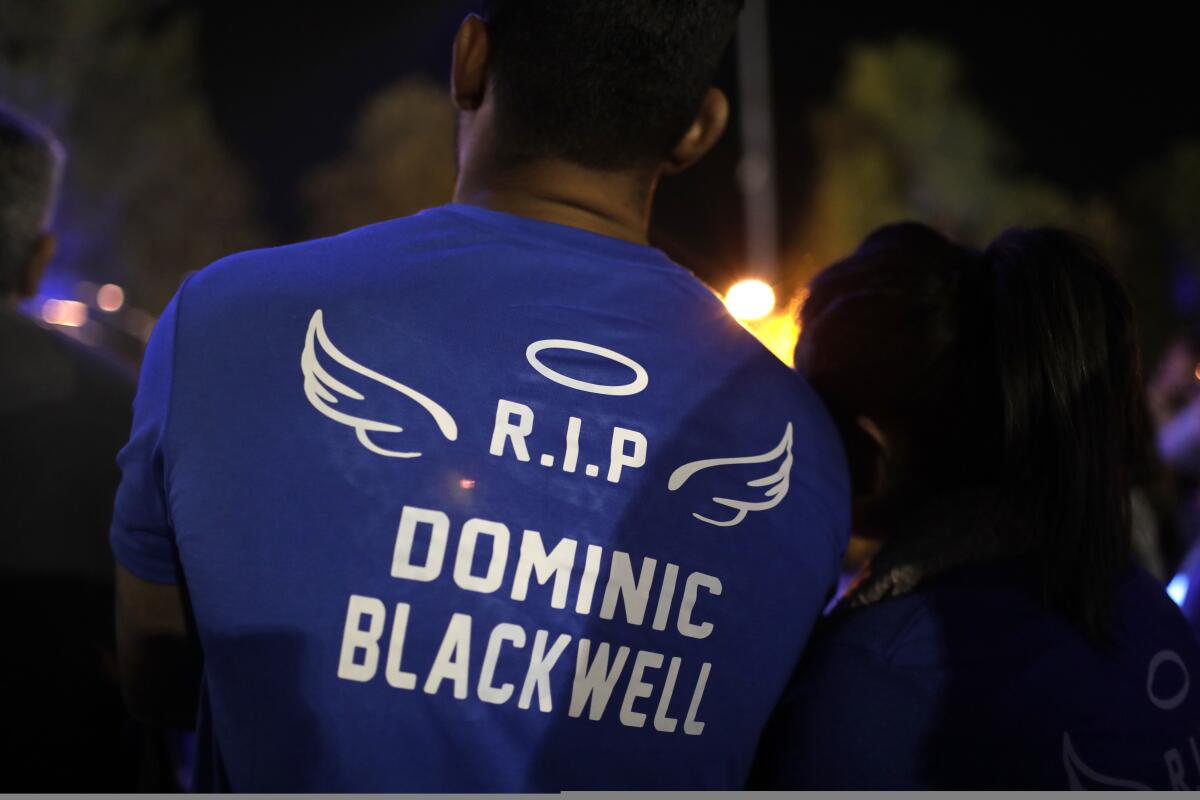
He wore a SpongeBob T-shirt almost every day. The first time he met Tiffany in a department store, he “shook my hand very firmly and said, ‘I just want you to know I’m Mia’s boyfriend,’ then ran off laughing,” Tiffany said.
Mia loved him and he’s gone, killed as they walked together, just another day until it wasn’t.
But as much as we mourn the dead, the living matter too. Gun violence is a terrible, tragic moment for those who die. It’s a lifetime of pain for those who live.
Tiffany remembers the morning Mia was shot, not really being worried even as she heard something was happening at the high school. She decided to drive over and check. On the way, she received a text from a number she didn’t recognize.
“Hi mom, I don’t know if you’ve heard, but there has been a shooting. Tell Max to chew with his mouth closed,” it read. Max is Mia’s little brother, in first grade when the shooting happened and an open-mouth eater at the dinner table, much to his big sister’s dismay.
Tiffany realized something was wrong and called the number. Much of what happened is a blur, but she remembers asking the person who answered if everything was OK, and being told Mia had been shot. “Do you want to talk to her?” they asked.
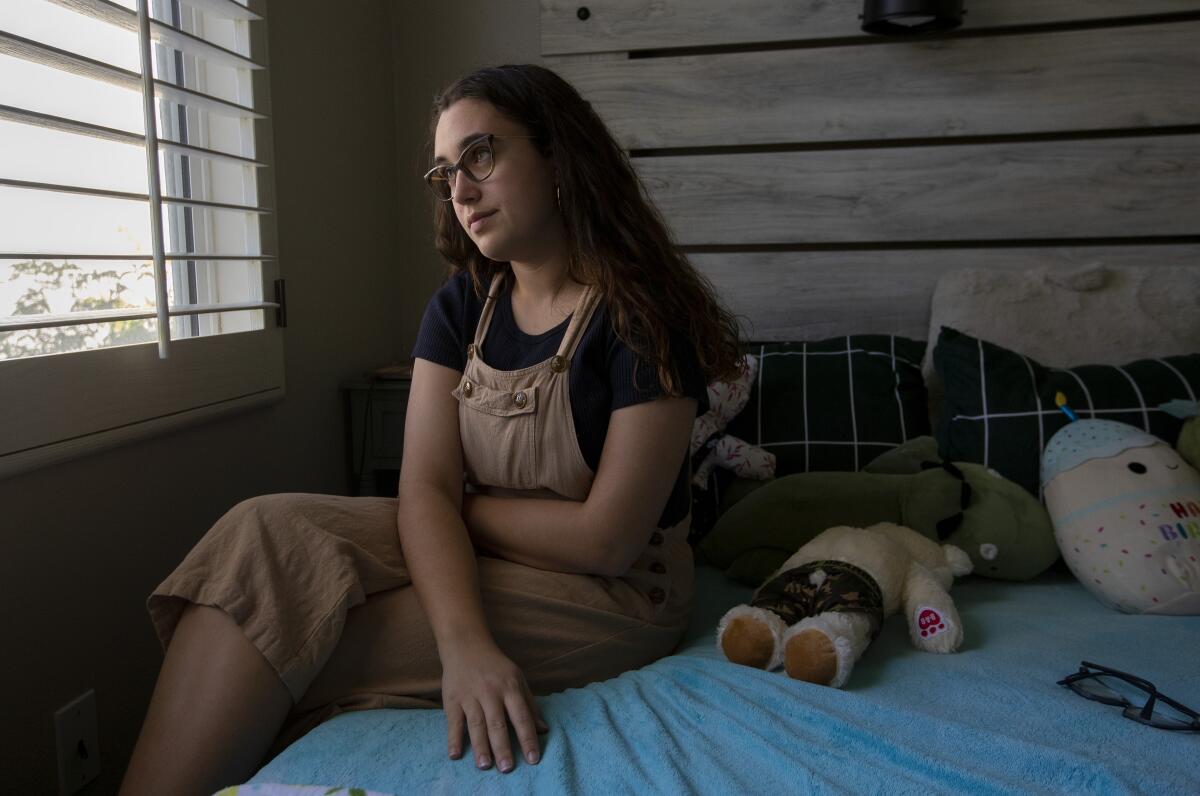
Mia sounded “as normal as can be,” Tiffany said. “Thank God for shock and adrenaline. I feel like, had she sounded in pain, I would have crumbled.”
Somehow Tiffany called her husband, Sean, and they arrived at the school at almost the same time, with Mia being wheeled out on a gurney. There was a helicopter trip to the trauma center, and though the bullet missed a major artery by millimeters, “we knew pretty quickly that she was going to be OK,” she said.
“But when you have to tell a child that their best friend was killed, you instantly see the innocence drain from them,” she said.
Mia still has physical problems from being shot — she’ll have another procedure in coming months. But the emotional recovery is harder.
“For a long time, I was very, very numb,” Mia said. “Trauma is a roller coaster. It doesn’t end and it’s not static.”
Tiffany felt the shock too and still does.
“You try to live a little bit harder, you try to love more, you try to not hold grudges on things you would have in the past,” she said. “As parents you got to keep going. You got to pick up and hold it together. You’ll fall apart one day when they are married and have their own children. It’s tough.”
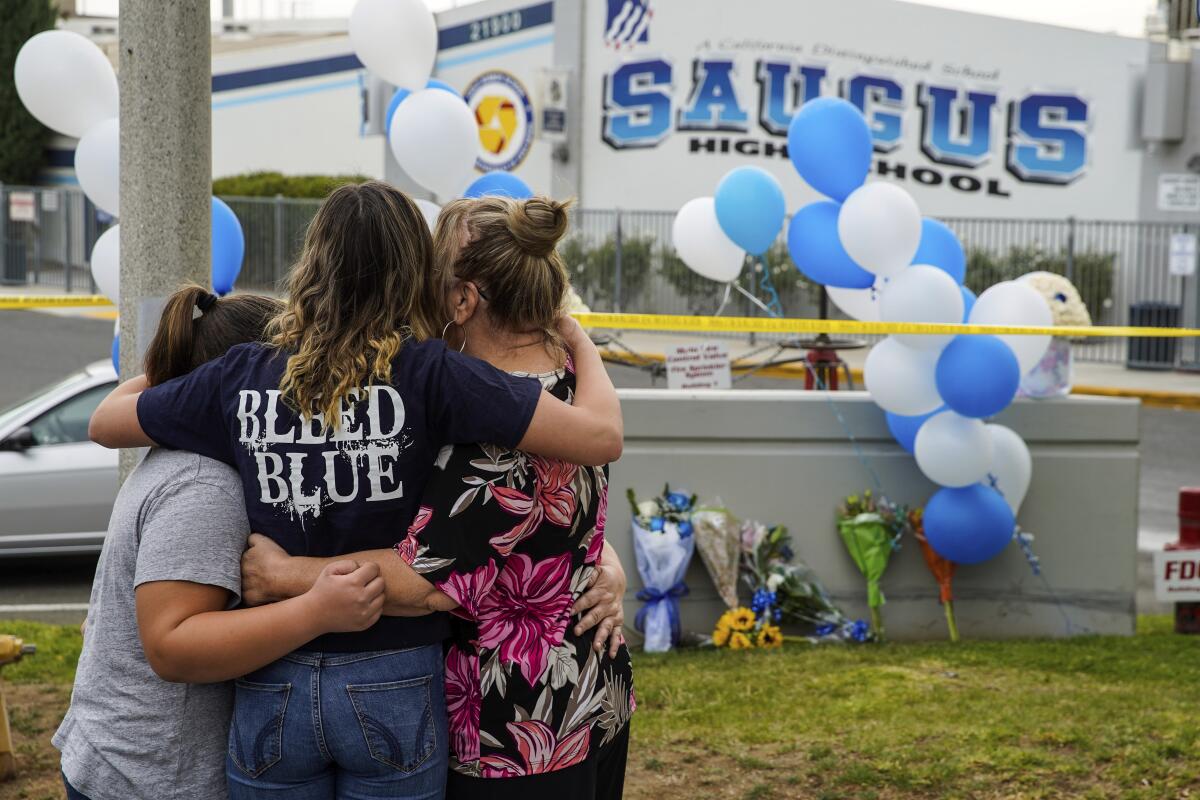
One of the hardest parts is how political shootings have become. If your child is in a car accident, Tiffany points out, the only response is sympathy and kindness.
“You say my child was shot at a school shooting, everybody has an opinion on that,” Tiffany said. “It’s the only thing that is polarized, and it’s really unfair. You’re talking about kids’ lives and kids’ safety.”
Mia has a service dog now, a golden retriever named Brandy, who goes to school with her and can wake her up from nightmares. She has PTSD. Popping balloons startle her, and Max knows better than to run up and scare her, as he liked to do before the shooting.
But Mia also discovered something about her pain.
“I realized really early on that I had the same comfort sitting in bed crying as I did going out and trying to change something,” she said.
Mia travels the country speaking on gun safety. Not long ago, she was at the White House for an event with President Biden. And she voted for the first time a few weeks ago — all candidates she trusts to share her values. Recently, after the school shooting in Uvalde, she held a walkout at Saugus High. In the conservative enclave of Santa Clarita, it wasn’t well received.
“People were holding up Trump flags and throwing things at us,” she said. “It’s a whitewashing, kind of trying to pretend this didn’t happen in ‘Awesometown,’” as one local neighborhood dubbed itself.
It’s Mia’s perseverance that gives me hope.
I am fairly certain the so-called adults aren’t fixing America’s gun problem anytime soon. Even in California, with some of the strictest gun laws in the nation, we are faced with the stone wall of those who genuinely believe they will someday need their weapons to overthrow our government, and any attempt to curb gun rights risks that mangled notion of patriotism.
But the kids have a chance.
“Generation Z is going to get rid of them,” Tiffany said, speaking of the politicians who believe their self-serving worship of the 2nd Amendment is more important than our children.
“I see it not just with my daughter,” she said. “I see it when she goes and meets with other groups of young [activists]. They realize the significant problem we have with guns in this county. I have a lot of hope for them, and it’s unfortunate that we’ve had to burn it all down for them to build it back up.”
Mia doesn’t want her whole life to be about guns. She’s 18 years old and applying to college. She dreams of Stanford, and they’d be lucky to have her. And she and her mom are back to volunteering at Thanksgiving, this year making meals for those living in motels.
But Mia is in this fight to win it, just like so many of her peers who “take no s—,” as Tiffany puts it.
“These are change makers,” Mia says of other young survivors she’s met.
“They are fighting for the exact same thing,” she said, no matter if they focus on climate change, reproductive rights or any of the other problems that seem so insurmountable and contentions — to “be safe and be happy and be loved and not be scared.”
“It’s not too much to ask,” she said.
No, Mia, it’s not. I wish we could win this fight for you, leave you with a better world. Or at least one where massacres don’t come and go from our consciousness like thieves, stealing a bit of our ability to feel each time.
But I’m grateful you’re not waiting for us to catch up. And I’m grateful that for all you’ve lost, you haven’t given up on us.
Watch L.A. Times Today at 7 p.m. on Spectrum News 1 on Channel 1 or live stream on the Spectrum News App. Palos Verdes Peninsula and Orange County viewers can watch on Cox Systems on channel 99.
More to Read
Sign up for Essential California
The most important California stories and recommendations in your inbox every morning.
You may occasionally receive promotional content from the Los Angeles Times.

